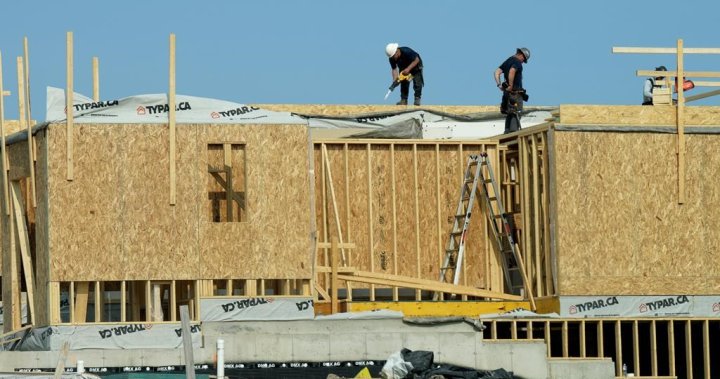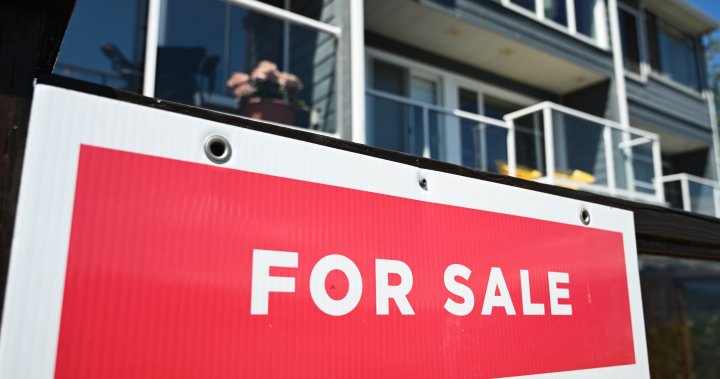Nearly a year after it came into effect, experts say it’s hard to know if Ottawa’s plan to keep foreign homebuyers out of the national housing market is helping affordability for Canadians.
The law, which bans non-resident people and enterprises from buying residential properties for two years, took effect on Jan. 1, 2023.
Global News asked Finance Canada and the Canada Mortgage and Housing Corporation (CMHC) for the most recent data showing how many Canadians and non-residents own homes in the country.
In a joint response, a CMHC spokesperson said the 2023 data is not yet available.
Two experts told Global News the ban likely would not have a large impact on housing prices because many factors affect the market and the ban impacted so few buyers.
Thomas Davidoff, a University of British Columbia business professor who studies housing, said the ban’s outcomes will likely be limited at best.
“If we saw a [house] price fall, say, after the foreign ban was put in place, would we be saying, this is a response to the foreign buyer ban or this is finally the long period of interest rates kicking in to affect home prices negatively,” he said.
On top of that, he said, the ban only impedes a very small number of buyers, who were already effectively locked out of two of Canada’s major cities.
“It’s very unlikely that a foreign buyer ban could have a meaningful impact on affordability in Vancouver or Toronto when foreign buyer taxes have driven the fraction of buyers who are foreign buyers… down to something like one or two per cent,” he said.
Get the latest Money 123 news.
Sent to your email, every week.
Blocking those remaining buyers from the market, he continued, isn’t “going to drive affordability and it’s going to be pretty small relative to the changes in prices we’ve seen as interest rates have gone all over the map.”
Christopher Alexander, president of RE/MAX Canada, agreed with Davidoff.
“I don’t see [blocking a small percentage of people from buying homes for two years] having a big enough effect to really move the needle on a positive or negative outlook for the market,” he said, speaking from Toronto.
The most recent Statistics Canada data shows non-residents owned 2.8 per cent of homes in Ontario and 4.5 per cent in British Columbia in 2021.
Data from the Canadian Real Estate Association, which represents realtors and agents, shows the home price index increased 0.6 per cent in November 2023 over the same time the year prior, meaning the aggregate cost of homes rose less than one per cent.
According to the Toronto Regional Real Estate Board, the average selling price rose 0.3 per cent over the same time, from $1,079,420 to $1,082,179.
Alexander said he only knows of one realtor affected by the ban.
The joint response from Finance Canada and the CMHC stated that the ban “ensures more homes are used as homes for Canadians to live in and not as a financial asset class for speculative foreign investors.”
The statement also stressed the move was part of a series of measures to build more homes and make homes more affordable, including removing GST from purpose-built rental construction and providing funding through the Housing Accelerator Fund.
“In the months to come, the federal government will continue to lead the national effort to solve the housing crisis through new measures to accelerate housing construction and drive down housing costs for Canadians,” the CMHC’s David Harris wrote.
Alexander and Davidoff welcomed the overall move to build more houses, but said the benefits could take years to materialize.
High interest rates usually hurt first-time buyers most, Davidoff said, so waiting for rates to drop and for houses to be built means “the beneficial effects on housing cost of these federal measures almost certainly has yet to be felt.”
© 2023 Global News, a division of Corus Entertainment Inc.




